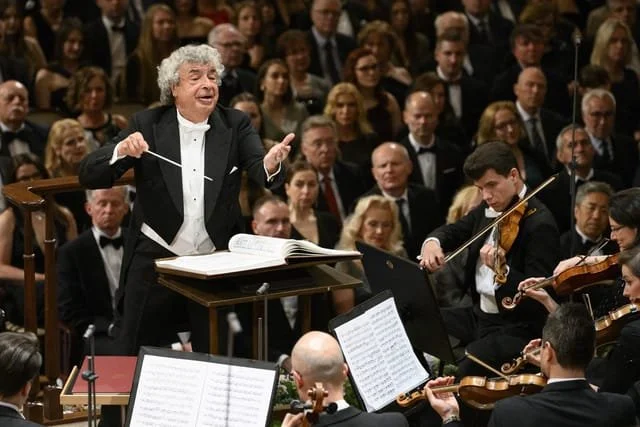2025 marks the 80th anniversary of the Prague Spring International Music Festival. The festival as it is known today was created in 1946 under the former composer of the Czech Philharmonic, Rafael ░Ł│▄▓·▒▒¶├Ź░ņ. The festival begins on May 12th every year to commemorate the death of the famous Czech composer Bed┼Öich Smetana and runs for about three weeks. The artists and pieces performed change each year, but one thing remains the same: the opening night performance of SmetanaŌĆÖs M├Ī Vlast (My Country) that functions as a symbol of cultural pride and independence.
Bedřich Smetana
Bed┼Öich Smetana is regarded as the founder of modern Czech music. Smetana developed his musical talent at a young age, starting his career as a pianist and composing pieces in his high school years. Born in the early 19th century, SmetanaŌĆÖs artistic style was influenced by famous classical composers such as Beethoven, Chopin, Schumann, and Liszt. Smetana and Liszt formed a friendship that changed the path of SmetanaŌĆÖs artistic career, with Liszt encouraging Smetana to create distinctly national music and pushing him to pursue orchestral compositions. At the time, Smetana was working in Sweden to develop his career as a conductor and composer.
At the same time, the October Diploma of 1860 was declared, creating a rise in interest in Czech culture. Smetana moved back to Prague in 1861 and began composing operas to Czech texts. Due to political control, Czech music was not developed freely during SmetanaŌĆÖs lifetime and was constantly influenced by outside cultures; therefore, he faced the challenge of laying the foundations of modern Czech music. Smetana became the principal conductor of the Czech Provisional Theatre in 1866, where his first two Czech operas debuted. At the peak of his career, Smetana began developing hearing loss that eventually led to his being fully deaf. It was during this period that he composed his most iconic piece, M├Ī Vlast.
M├Ī Vlast consists of six symphonic poems that function as a love letter to SmetanaŌĆÖs homeland, which was then known as Bohemia. The first poem, │š▓Ō┼Ī▒│¾░∙▓╣╗Õ, references the large castle that overlooks the city of Prague. The most famous poem, ŌĆ£Vltava,ŌĆØ is an homage to the river of the same name that passes through the Czech capital, and is based on two events from SmetanaŌĆÖs life. The third poem is based on the legend of ┼Ā├Ī░∙░ņ▓╣, and the fourth poem reveres the forest and lowland regions of the country. The final poems, ░š├Ī▓·┤Ū░∙ and Ą■▒¶▓╣▓į├Ł░ņ, were intended to be performed as a complementary pair and reference the story of the Hussites fighting against the crusades.
Chief Conductor of the Czech Philharmonic Semyon By─Źkov during the Prague Spring Festival
Bed┼Öich SmetanaŌĆÖs legacy continues today through the Prague Spring International Festival, specifically its opening ceremony. Each year, the honor of performing this famous piece falls to a different orchestra; this year it will be performed by the Czech Philharmonic under conductor Semyon Bychkov. SmetanaŌĆÖs M├Ī Vlast is embraced as a symbol of Czech culture and, more importantly, of independence and national freedom.
Written by Eva Cheng
Sources:
Bate, Danny. ŌĆ£Prague Spring Music Festival turns 80 with rich programme of international talent.ŌĆØ Radio Prague International, 13 May 2025, . Accessed 21 May 2025.
Helfert, Vladimir. ŌĆ£Bed┼Öich Smetana (1824--2 March--1924).ŌĆØ The Slavonic Review, vol. 3, no. 7, 1924, pp. 141ŌĆō55. JSTOR, http://www.jstor.org/stable/4201826. Accessed 21 May 2025.
Philip, Robert. ŌĆ£BED┼śICH SMETANA: (1824ŌĆō84).ŌĆØ The Classical Music LoverŌĆÖs Companion to Orchestral Music, Yale University Press, 2018, pp. 753ŌĆō58. JSTOR, https://doi.org/10.2307/j.ctv9b2wqr.59. Accessed 21 May 2025.



